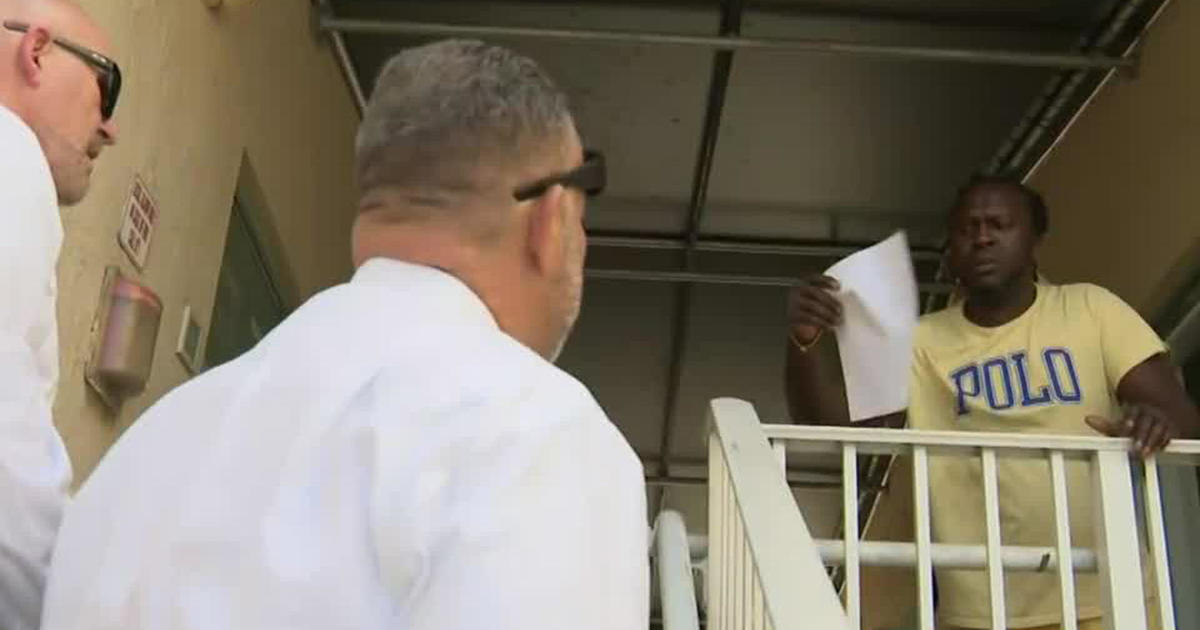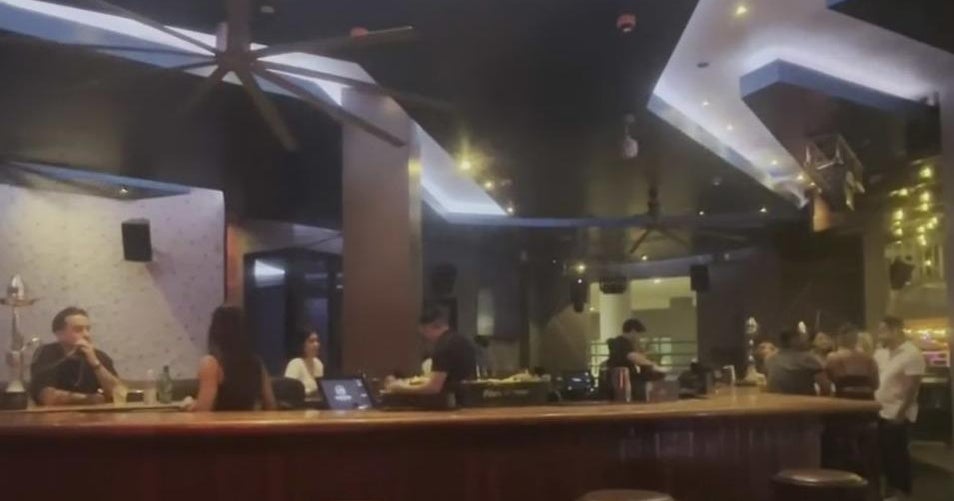Guantanamo Moving Prisoners Into Shelters, Evacuating Others
GUANTANAMO NAVY BASE, Cuba — Lawyers and reporters are being airlifted off base by noon Thursday, and captives are being moved into hurricane-proof shelters.
CBS4 news partner The Miami Herald reports sirens blared just after 11 a.m. Wednesday alerting the 6,000 or so people across this corner of southeast Cuba to get ready for Tropical Storm Isaac.
The chief war court judge canceled this month's hearings in the Sept. 11 terror trial, and the Pentagon prepared to airlift the lawyers and reporters off the island.
At the prison camps, commanders contemplated pulling down sniper netting affixed to chain-link fences so they don't turn into sails and moving all 168 captives into hurricane-proof shelters.
"Attention! Condition of Readiness 4. Destructive winds forecasted within 72 hours," advised a recorded announcement through base loudspeakers. "Monitor radio and TV for updates."
In a drill all-too-familiar to South Floridians, Condition Readiness 4, or CORE 4, meant that base residents were instructed to clear their yards of lawn furniture and other loose objects that "may become projectiles during high winds," said base spokeswoman Kelly Wirfel. It also meant that commanders watching National Hurricane Center reports anticipated "destructive winds" greater than 50 knots within 72 hours.
At the prison camps, Navy Capt. Robert Durand assured that all the detainees and guards at the seafront prison camps would be secured.
Most captives, about 85 percent, are routinely held in "brick and mortar structures capable of withstanding hurricane-force winds."
Others held in less sturdy cells at the sprawling prison camps compound "will be sheltered" in "secure locations capable of withstanding hurricane-force winds." He would not provide details, citing security concerns.
The "sniper fencing" that covers chain-link fences obscures the views the detainees have of their surroundings — and prevents them from seeing troop movements in and around the camps. But in strong winds, sniper netting "turns it into a big sail," said Durand, suggesting it could uproot fences inside the Detention Center Zone. "We also have a plan to shelter and feed our troops, civilian employees, contractors and family members in hurricane-safe locations."
At the court, Army Col. James Pohl, the chief military judge, canceled this week's session of pre-trial hearings in the Sept. 11 terror case. It was meant to focus on secrecy and transparency. His order said he was canceling "based on impending weather conditions ... and a concern for the safety and welfare of personnel."
He set no new date for the next hearing.
Issues of concern likely included the infrastructure of Camp Justice as well as road conditions between the prison camps and the court, which have been known to flood in heavy rain.
At the court, the $12 million Expeditionary Legal Compound is a bunker-like building with an adjacent trailer park where the Pentagon puts up some defense lawyers and case prosecutors. Nearby, reporters and some legal staff are housed in a crude tent city that through the years has been whipped by fierce summer storms but never a hurricane.
Earlier, the Pentagon's chief war crimes prosecutor was asked whether it wouldn't be easier to hold the terror trial in Manhattan. "This is where our Congress and our government says we're going to do this," Army Brig Gen. Mark Martins replied.
(©2012 CBS Local Media, a division of CBS Radio Inc. All rights reserved. This material may not be published, broadcast, rewritten, or redistributed. CBS4 news partner The Miami Herald contributed material for this report.)



